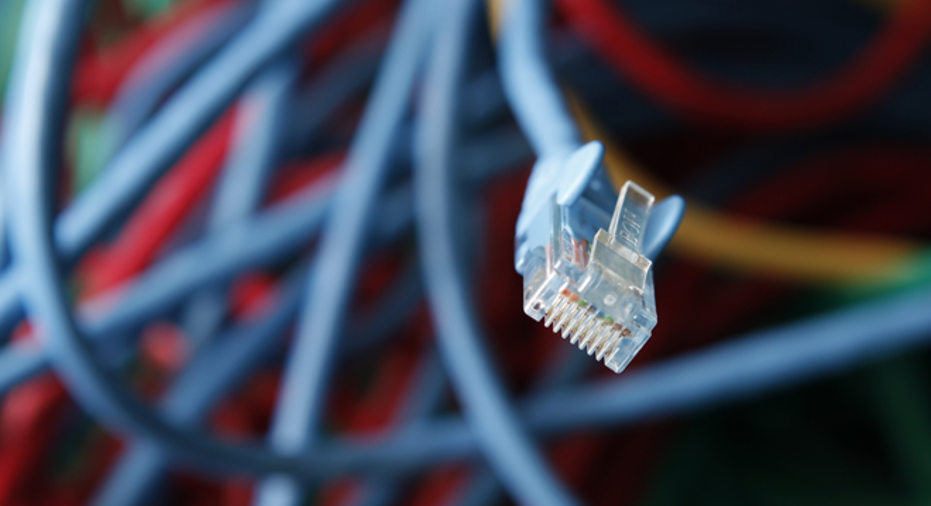The Real Impact of Net Neutrality

To say I’m disappointed in the FCC’s net neutrality ruling to reclassify broadband Internet service as a utility is an understatement. Actually, I’m appalled. And if you’re not appalled, you should be. Every American should be. Once again, you’ve been had by duplicitous politicians, regulators and special interests.
Make no mistake, this is a very, very big deal.
By turning the Web over to five presidential appointees we’ve overturned a core policy of the Telecommunications Act of 1996 “to preserve the vibrant and competitive free market that presently exists for the Internet and other interactive computer services, unfettered by Federal or State regulation.”
Why the sudden reversal on one of America’s most powerful assets? Videos. Entertainment videos, actually. Even crazier, the claims that led to that extraordinary policy shift -- that Comcast and other broadband service providers had throttled Netflix traffic to gain negotiating leverage -- turned out to be false.
If that’s news to you, join the club; I doubt if any of the millions of people that lobbied for net neutrality had a clue either.
Of course there was also more than a little spin doctoring and fear mongering by self-serving government officials, consumer advocates, and corporate executives over the idea that broadband service providers might create fast lanes or favor some content over others. But that was also nothing but a fabrication.
And perhaps the most ludicrous notion of all is that regulation will somehow spur innovation and competition. Really? In what bizarro universe has that ever happened?
Meanwhile, we now we have all sorts of commentary on Wired, The Verge, Forbes and Gigaom explaining why maybe, just maybe, we’ve just made a terrible blunder. Cisco CEO John Chambers says it’s an enormous mistake. Mark Cuban faults Silicon Valley groupthink. I’m just wondering why we always figure this out after the fact?
The great irony is the way FCC chairman Tom Wheeler, President Obama, and Netflix CEO Reed Hastings used the power of the regulation-free Internet to dupe everyone into supporting “intrusive government regulations that won’t work to solve a problem that doesn’t exist using legal authority the FCC doesn’t have,” as FCC commissioner Ajit Pai so aptly put it.
But then, this is nothing new. From No Child Left Behind and Sarbanes-Oxley to Dodd-Frank and Obamacare, we should all be used to being played by now. You can just as easily apply Pai’s words to describe every regulatory power grab of our generation, not to mention the president’s “pen and phone” executive orders.
This should all be familiar territory by now.
It always starts when something bad happens. Enron goes bankrupt, student test scores decline, a subprime mortgage crisis triggers a worldwide recession, healthcare costs spiral out of control, or something really horrible like some people having trouble downloading movies.
Then politicians who never let a crisis go to waste get into the act, proposing legislation or regulations to show the American people they mean business and are earning their pay when, in reality, they’re just overreacting to get reelected, support the party line, or make it seem as if they actually did something useful while in office.
It’s just what politicians and regulators do.
Then of course some special interest groups, lobbyists, agitators, environmentalists, self-proclaimed consumer advocates, and in some cases, corporations, get into the act; benefitting from the chaos by getting the masses all riled up to do their bidding.
That’s when everyone fills the airwaves and news sites with nice-sounding sound bites like “corporate governance” and “net neutrality,” fear-mongering tag lines like “too big to fail” and “Internet fast lanes,” and downright lies such as “you can keep your health plan” or “Comcast is taxing the Internet.”
Next thing you know we’ve got new legislation, regulations, agencies with expanded power, or entirely new bureaucratic bodies such as the Department of Education, the Environmental Protection Agency or the FCC.
That’s when all the fun begins because that’s when we all begin to find out how the rules actually work and just how badly we screwed up. How that became business as usual in Washington, only Nancy “We have to pass the bill [to] find out what is in it” Pelosi knows.
That’s when the buyer’s remorse starts to set in. If you’re not feeling remorseful yet, I’ll make a prediction. You will, soon enough, unless attorneys from Comcast and Verizon can punch holes in the new regulations.
I can’t believe I’m actually going to say this but Silicon Valley got us into this mess and now big cable lawyers are going to have to get us out of it. Hard to believe the irony.



















